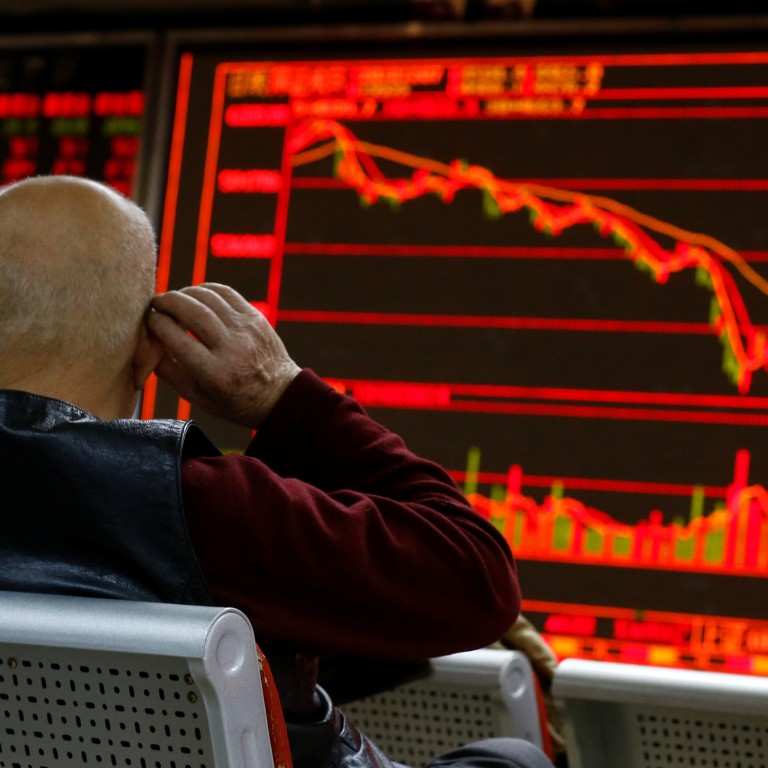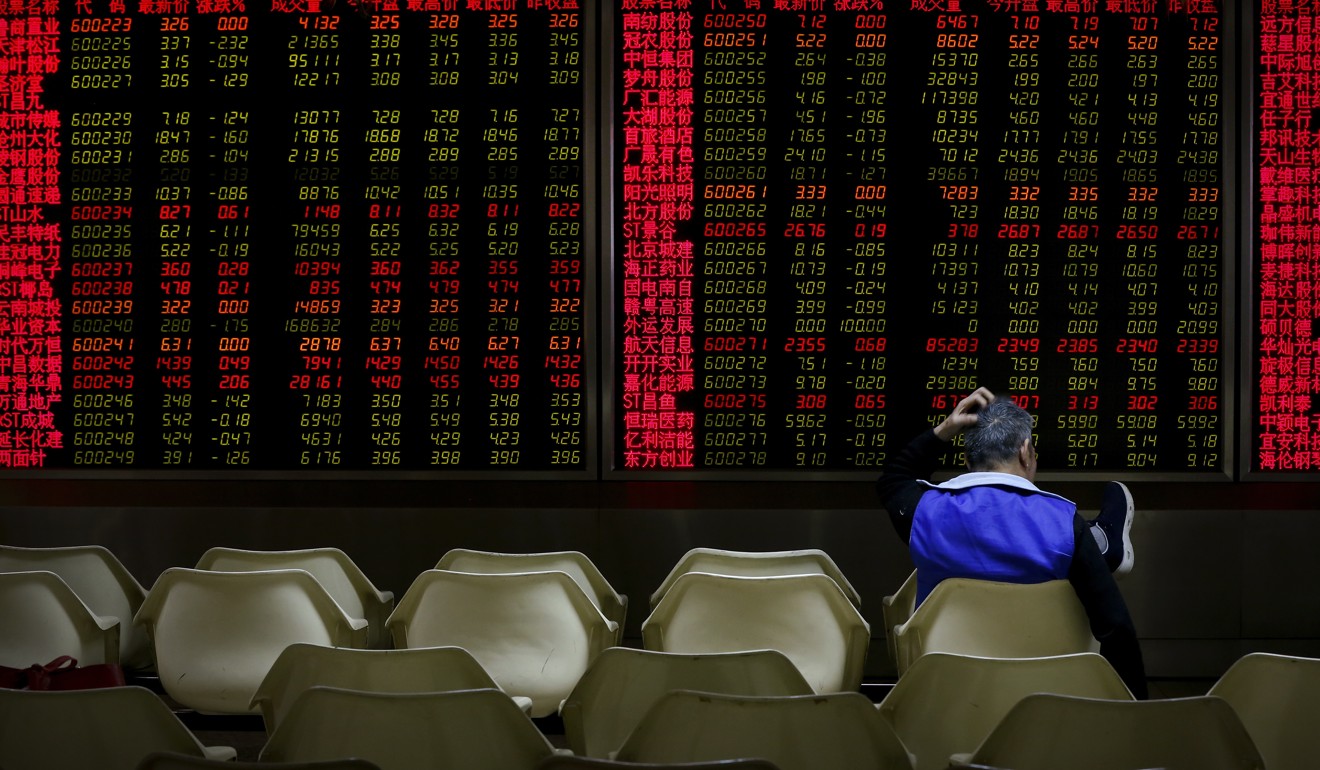
China stock market meddling will be reduced after bad year, vows Beijing
- Financial Stability and Development Commission, part of the People’s Bank of China, says the heavy hand of intervention will be replaced by the light touch
- China pledges to attract more funds into stocks after the market reported one of the world’s worst performances in 2018
China’s heavy handed intervention in stock trading will cease and investment funds will be encouraged to buy into its equity market, as Beijing hopes to boost a stock market that has been among the world’s worst performers this year.
The Financial Stability and Development Commission, part of the People’s Bank of China, announced on Thursday that the world’s second largest economy must fully implement “market principles” to “reduce administrative intervention in stock trading”.
The decision followed a meeting with the country’s financial regulators and major banks, brokerage houses and fund managers, chaired by deputy central bank governor Liu Guoqiang.
The conference agreed that China must follow “international practices” to cultivate “medium- and long-term investors” as well as allow various new asset managers access to the capital market.
It was not enough to boost market sentiment immediately, as the benchmark Shanghai Composite Stock Index closed on Thursday at a two-month low.
Beijing’s efforts to draw fresh funds into stocks may not work, due to weakening confidence in China’s economic growth outlook, according to Hao Hong, managing director and head of research at Bocom International in Hong Kong.
“Beijing has eased the intensity of its crackdown on shadow banking, and has pumped ample liquidity into the interbank market. But the money is just circulating between banks [and not reaching the real economy],” he said.
“There is no sign of an economic rebound in the near term.”
The new approach is in sharp contrast to three years ago when Beijing intensified its intervention in stock trading after a market rout humiliated the government.
Then, the Chinese government established a “national team” of financial institutions to directly buy stocks with public funds and also started a campaign to hunt down “financial crocodiles”, whose trading practices were blamed for the stock crash, resulting in a slew of arrests and some suicides.
Xu Xiang, a star investor who raised money from investors to speculate in stocks, was arrested and convicted of insider trading. Cheng Boming, the former general manager of Citic Securities, was investigated for illegal stock trading and later convicted of taking bribes.

Citic Securities, Haitong Securities and Guosen Securities, three big brokerage houses in China, were condemned and fined for providing credit to clients in 2015, but the China Securities Regulatory Commission last month concluded that the three brokerages had committed no wrongdoing.
As part of its post-crash response, Beijing restricted margin trading in stocks and stock index futures trading.
While Beijing’s strong measures “stabilised” the market, they also hurt market dynamism and shattered investor confidence. Since then, China’s drive to curb financial risks has discouraged fresh funding for its stock markets.
China’s benchmark Shanghai stock index has so far lost 25 per cent in 2018. Compared to its peak in the summer of 2015, the index has lost more than 50 per cent, and China’s stock market capitalisation has fallen below that of Japan’s.
The weakness in Chinese stock prices has been cited by US President Donald Trump as a sign that China cannot withstand the pressure of a protracted trade war with the US.
China’s financial stability commission, which reports to Vice-Premier Liu He, argued that China’s stocks now have “long-term investment value” and so are a safe bet for investors, according to its statement on Thursday.
China’s regulators will enhance their “communications” with the market and “listen to opinions from the market,” it added.

